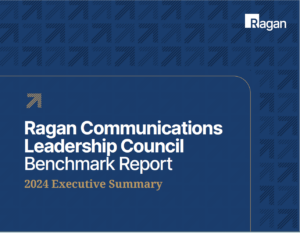Helping working parents juggle their careers and childcare amid COVID-19 turmoil
Forty-two percent of employees with kids are on the brink of burnout. Here’s how wellness pros can be a support in this turbulent season.

To paraphrase comedian Jim Gaffigan, being a working parent right now could be surmised thusly: “Imagine you’re drowning, then someone hands you a baby.”
To say the least, working parents are under immense strain amid the ongoing disruption of COVID-19. What, if anything, can employers do to help?
A study from Paychex sheds light on how wellness pros can support their beleaguered colleagues in a historic, chaotic season of change. The report, which features feedback from 1,000 full-time employees (533 of whom identified as parents of school-age children), found that:
- Forty-two percent of parents felt moderate to extremely burnt out trying to balance their careers with childcare.
- Less than 1 in 3 parents were fully confident they could maintain their current work situation for the school year.
- Overall, approximately 1 in 2 working parents believed their work-related stress was negatively affecting their children.
As COVID cases continue rising across the country—and schools ping between in-person learning and virtual instruction—parents are struggling to find anything resembling a normal routine or “healthy” work/life balance. The unpredictability is taking a heavy toll—especially on women. Paychex found that 38% of women are finding it “difficult” to balance their career and childcare, while just 24% of male respondents said the same. The survey also found, “Just 32% of women reported the division of parenting responsibilities in their home was shared equally with their partner,” and that “women were significantly more likely to express being more responsible for caring for their children (57%).”
Working single mothers reported especially high levels of stress and burnout.
Hope and help on the way?
Not all the news is bad, necessarily. Forty-seven percent of respondents expressed a belief that their childcare situation will improve during the school year. Another 35% said they’re finding it “somewhat easy” to balance childcare with work responsibilities, and nearly 60% of working couples said that balancing childcare and careers has “had a positive impact on their relationship.”
Getting out of the house seems to help, too. Paychex found much lower rates of burnout among those who are able to work outside their home—rather than those who are strictly home-bound.
Of course, working parents’ WFH experience is dramatically shaped by school schedules and how much help they have on the homefront. Fifty-nine percent of Paychex’s respondents say they’re assuming at least some teaching responsibilities at home, while 47% are relying on friends and family to manage all the chaos. Otherwise, respondents’ top five obstacles of WFH (with children) include:
- Interruptions while working
- Interruptions during meetings
- Inconsistent work hours
- Less time to dedicate to work
- Shortened stretches of focus
Paychex points out other common pain flashpoints:
“Three in four working couples had at least one disagreement over childcare during the pandemic, including their privileges in recent months (34%), which parent’s career should be a priority (30%), and whether their children should attend school in person (27%). Another 26% of parents disagreed over how to handle childcare at home during the health crisis.”
The high cost of childcare is another key concern. According to Paychex, “The average working parent is spending an additional $347 each month due to their child being out of school.”
The mental health toll
The pandemic is hammering workers’ mental health. But the kids are suffering, too. Seventy-four percent of respondents believe their children’s mental health is being harmed by the pandemic, and 61% express serious worry about what the future holds.
School closures will make matters much worse for working parents. Twenty-nine percent of working parents say they’ll have to cut their hours if their kids can’t attend school, and 13% indicate they might have to quit altogether.
How to help
How can your company be a support instead of a burden right now? For starters, you can boost morale and engagement by:
- Generously giving workers resources that will make their lives and jobs easier.
- Enabling, encouraging and facilitating personal and professional development.
- Providing resources that bolster mental, physical, spiritual and financial health.
- Helping to cover or defray childcare costs.
- Providing ample time off.
- Lavishing employees with praise and recognition.
- Consistently reminding workers that their mental and physical health are a priority—and ensuring your policies (and internal politics) support these claims.
- Encouraging workers to establish healthy routines and boundaries, and pursue flexible, empathetic scheduling.
- Frequently surveying employees to see how they’re doing and how the company can be a support.
For more data on how working parents are coping amid COVID-19, read the rest of Paychex’s survey here.







